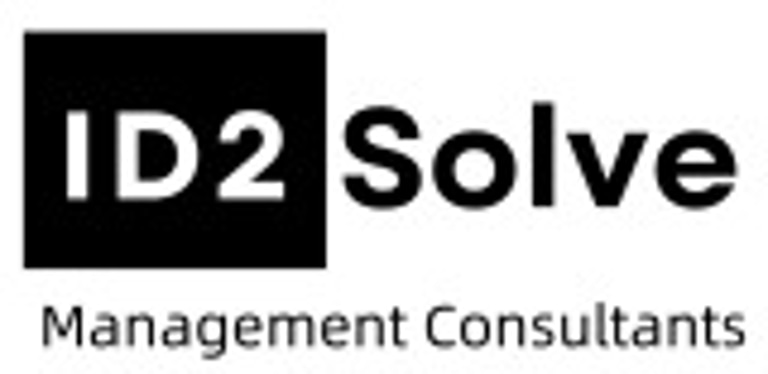ID2Solve's Consulting Models
We offer consulting and strategy development to implementation and support,
so your business can thrive in unpredictable economic conditions.
Six Ways To Engage with ID2Solve
By comprehensively understanding these engagement frameworks, organizations can unlock the full potential of consulting services, fostering growth, innovation, and long-term resilience.
Managed Services


Managed Services Consulting is a long-term, outsourced consulting engagement where a consulting firm takes full or partial responsibility for managing a specific function, process, or department within a client’s business. Unlike project-based consulting, where firms provide recommendations and exit, managed services involve ongoing execution, oversight, and continuous improvement.
This model is popular in IT, HR, finance, supply chain, customer support, and compliance management. Instead of the client handling these operations in-house, the consulting firm assumes ownership, often leveraging technology, automation, and industry best practices to improve efficiency and cost-effectiveness.
Long-Term Engagement & Service Continuity
Contracts typically last 12+ months and are renewable, ensuring consistency in service delivery.
Clients benefit from continuous optimization and process improvements.
Ownership of Business Processes
Unlike traditional consulting, the consulting firm is responsible for executing tasks, managing workflows, and delivering results rather than just offering advice.
Often structured as full outsourcing (where the firm runs the entire function) or co-managed services (where the client retains some internal control).
Defined Service-Level Agreements (SLAs)
SLAs outline key performance metrics such as response time, service uptime, compliance standards, and expected efficiency improvements.
Ensures accountability and performance-driven execution.
Scalability & Process Automation
Managed service providers use automation, AI, and industry best practices to drive efficiencies.
Services can be scaled up or down based on business needs.
Predictable Cost Structure
Clients pay a fixed recurring fee (monthly, quarterly, or annually), making budgeting easier.
Some contracts include performance-based incentives tied to measurable results.
Cost Savings – Reduces operational costs by outsourcing functions instead of hiring full-time staff.
Focus on Core Business – Allows internal teams to concentrate on strategic priorities while the consulting firm handles routine operations.
Access to Expertise & Best Practices – Brings in highly skilled professionals with industry-specific knowledge.
Technology & Innovation – Consulting firms often use AI, automation, and advanced analytics to optimize processes.
Risk Mitigation & Compliance – Helps businesses stay compliant with regulations, reducing legal and operational risks.




Project Focused
Project-focused consulting is a time-bound, goal-specific consulting engagement where a consultant or firm is hired to deliver a defined outcome within a set timeframe and budget. Unlike retainer-based consulting, where clients receive ongoing support, project-based consulting concentrates on a specific challenge, initiative, or transformation with a clear start and end point.
This model is widely used in industries such as management consulting, IT, construction, marketing, finance, and strategic business planning.
Clearly Defined Scope & Objectives
The engagement is structured around a specific problem, initiative, or deliverable.
Goals, timelines, and expected results are clearly outlined before the project begins.
Fixed Timeline & Budget
The project follows a structured schedule, ensuring completion within an agreed period.
Costs are typically predefined, reducing financial uncertainty.
Milestone-Based Execution
Larger projects are often broken down into phases or milestones to track progress.
Regular client check-ins ensure alignment with objectives.
Tangible Deliverables
Unlike retainers, which focus on ongoing support, project-based consulting delivers specific, measurable outcomes such as:
A business strategy report
An IT system implementation
A market expansion plan
A process improvement framework
Client and Consultant Relationship is Temporary
Once the project is completed, the consultant’s involvement typically ends unless a follow-up engagement is agreed upon.
Cost Predictability – One-time investment with a fixed price or structured payment schedule.
Focused Expertise for Specific Challenges – Clients get specialized knowledge tailored to their current needs.
Faster Results – The structured approach ensures clear goals are met within a defined timeframe.
Risk Reduction – Clients can test external expertise without a long-term commitment.
Scalability – Companies can engage consultants on a per-project basis rather than hiring full-time staff.
Retainer-based consulting is a service agreement in which a client pays a fixed fee regularly (monthly, quarterly, or annually) to retain the consultant’s services for a specified period. Unlike one-time project fees or hourly billing, a retainer ensures ongoing access to expert guidance, strategic planning, and problem-solving without the need for frequent renegotiation of contracts.
This model is commonly used in industries such as marketing, legal services, IT support, and financial advisory.
Fixed, Recurring Payments
Clients pay a predetermined fee for ongoing consulting services.
Can be structured as monthly, quarterly, or yearly payments.
Guaranteed Access to Expertise
Clients receive priority access to the consultant’s services whenever needed.
Avoids the delays and inefficiencies of hiring consultants on an ad-hoc basis.
Scope of Work Defined Upfront
Retainers typically outline specific services included (e.g., advisory, strategy development, troubleshooting).
Some agreements allow flexibility to adjust services over time.
Flexible Service Delivery
Consultants may work on a fixed number of hours per month, provide on-demand advice, or handle specific ongoing tasks.
Some retainers focus on availability rather than direct deliverables.
Long-Term Relationship Building
Consultants develop a deeper understanding of the client’s business over time, leading to more effective, tailored solutions.
Encourages strategic rather than reactive decision-making.
Predictable Costs – Fixed fees help with budget planning and cost control.
Continuous Support & Faster Response Time – Clients get priority access to expertise.
Stronger Relationship with Consultant – Deep understanding of business leads to better strategic advice.
Avoids Hiring Full-Time Staff – Cost-effective alternative to employing in-house specialists.
Proactive Problem-Solving – Allows for ongoing improvements rather than one-time fixes.
Retainer Based
Key Features of Project-Focused Consulting
Key Features of Retainer-Based Consulting
Key Features of Managed Services Consulting
Benefits of Managed Services Consulting
Benefits of Project-Focused Consulting
Benefits of Retainer-Based Consulting
Staff Augmentation / Interim Mgmt.
Staff augmentation and interim management involve temporarily embedding external consultants into a company’s workforce to fill key roles, provide expertise, or lead strategic initiatives. Unlike traditional consulting, where advice is given externally, in this model, consultants work inside the organization for a defined period.
Staff Augmentation focuses on temporary workforce solutions (e.g., IT, project managers, finance professionals).
Interim Management involves placing experienced leaders (e.g., CEOs, CFOs, CMOs) in executive roles during transitions.
On-Site or Hybrid Work Arrangement
Consultants work as part of the client’s team rather than providing external advisory services.
Can be fully on-site, hybrid, or remote, depending on client needs.
Temporary, But Impactful Roles
Engagements typically last 3–12 months, with extensions based on need.
Used for urgent leadership vacancies, mergers & acquisitions, technology implementations, or crisis management.
Industry-Specific Expertise
Consultants bring deep domain knowledge tailored to the client’s industry.
Reduces ramp-up time needed for internal staff to develop those competencies.
Seamless Integration With Internal Teams
Unlike external consulting firms, interim managers directly manage teams, projects, and budgets.
This approach ensures hands-on execution of business strategies.
Quick Access to Specialized Talent – Eliminates long hiring processes and gets immediate expertise.
Cost-Effective Alternative to Permanent Hiring – No long-term salary commitments, only pay for the needed expertise.
Business Continuity & Crisis Management – Ideal for leadership transitions or critical project completion.


Training & Capability Development
Training & Capability Development Consulting focuses on enhancing an organization's internal skill sets through structured learning programs, workshops, and mentoring initiatives. Instead of solving problems directly, consultants empower employees with knowledge and tools to drive long-term business success.
This is widely used in leadership development, digital transformation, process improvement, and technical training.
Structured Learning Programs
Includes workshops, online courses, mentoring programs, and leadership training.
Customized to fit the client’s industry and workforce needs.
Skill Transfer & Knowledge Sharing
Unlike traditional consulting, where recommendations are made, this model builds internal expertise for long-term impact.
Custom-Tailored Solutions
Programs can be one-time sessions or ongoing learning modules.
Often includes certifications, hands-on exercises, and real-world case studies.
Blended Learning Methods
Uses a mix of in-person workshops, e-learning platforms, and AI-driven training tools.
Builds Internal Expertise – Reduces dependence on external consultants over time.
Higher Employee Productivity & Engagement – Well-trained employees perform better and innovate more.
Competitive Advantage – Keeps companies ahead of industry trends and technological advancements.
Performance-based consulting is a results-driven engagement model where a consultant's compensation is partially or entirely linked to the success of the project. Instead of a fixed fee, payment is based on achieved targets, such as cost savings, revenue growth, operational improvements, or efficiency gains.
This model is often used in turnaround strategies, cost reduction programs, sales improvement initiatives, and business process optimizations.
Compensation Tied to Results
Fees are based on KPIs (Key Performance Indicators), such as cost savings, revenue growth, or efficiency improvements.
Some contracts use a hybrid model, combining a fixed base fee with a performance-based bonus.
Shared Risk and Reward
The consultant takes on financial risk, as payment is tied to measurable success.
Aligns consultant’s interests with client’s business goals and outcomes.
Data-Driven Approach
Strong reliance on quantifiable metrics to assess performance.
Regular reporting ensures transparency in tracking progress and achievements.
Clearly Defined Objectives
Success metrics are negotiated upfront to prevent disputes over payment.
Usually structured around revenue targets, cost reductions, operational efficiency, or market expansion.
Lower Upfront Costs – Clients pay based on results, reducing initial financial risk.
High Return on Investment (ROI) – Since consultants are paid for delivering results, the engagement maximizes value.
Motivated Consultants – Consultants are incentivized to perform at their highest level.
Performance-Based Consulting




Benefits of Staff Augmentation & Interim Management
Key Features of Staff Augmentation & Interim Management
Key Features of Training & Capability Development Consulting
Benefits of Training & Capability Development Consulting
Key Features of Performance-Based Consulting
Benefits of Performance-Based Consulting
© Copyright 2024 ID2Solve Management Consultants. All rights reserved.
Privacy Policy
English & Spanish
Office: 919-369-7004
